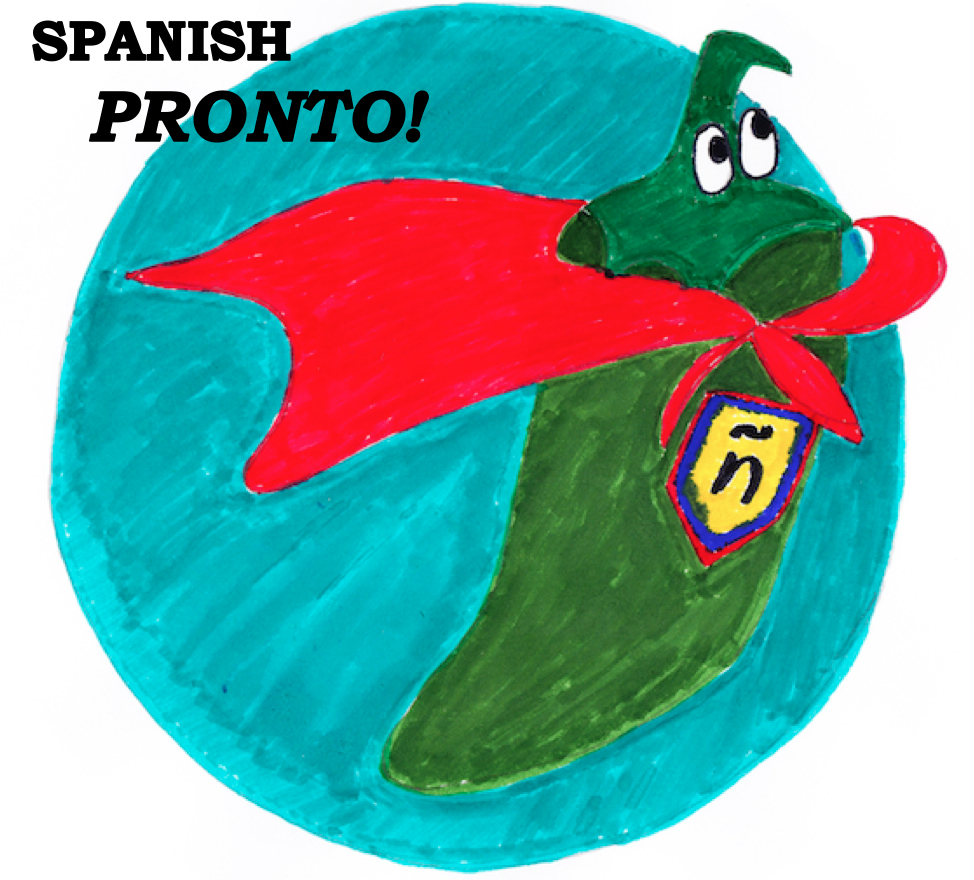
Spanish Vocabulary
Learn 10 Spanish words per day and know 2,500 words after one year!Many words in Spanish and English are similar, but similar words can have very different meanings, so be careful.
modo way, manner (ni modo (Mexico) "oh, well", "that's just how it is", "there's nothing that can be done about it")modelo model
mediante through, by means of
medida measure
pasar to spend (time); to pass (pasarla bien to have a good time ['to spend it well'])
paso step; I spend (time); I pass
pasa dried fruit, raisin; he/she/it spends (time), you(formal) spend (time); he/she/it passes, you(formal) pass
pasó he/she/it/you(formal) spent (time); he/she/it/you(formal) passed
camino way; road
plan m. plan
Words pronunciation: 0:27 (27s)
The opposite of 'ni modo' would be '¿sí, se puede!' ('yes, it can be done!'), which translates most often as 'yes, we can!'
'Modelo' can mean any kind of model, in which case it is masculine: 'el modelo.' When it means a female fashion model, it is feminine: 'la modelo' (the '-o' ending does not change).
'Medida' means both kinds of measure: a measurement (or act of measuring) and an action taken to produce an intended result.
'Raisins' are usually simply 'pasas,' but can also more specifically be called 'pasas de uva' ('dried grapes') to distinguish them from other kinds of dried fruit.
The proper translation of 'that's the way (uh-huh, uh-huh, I like it)' is not 'ese es el camino…' ('that is the road…') but rather 'así es (como me gusta)' ['it is like that (how it is pleasing to me)'].
Words ending in vowels add an '-s' to become plural, and words ending in consonants add an '-es,' so plans, in Spanish, are 'planes' [PLAH-nayss].
ya tiene el sueño; ahora falta encontrar el modo de lograrlo you already have your dream ('the dream'); now you just need to find ('now it is lacking to find') the way to achieve itcomo modelo ha podido viajar a todas partes del mundo as a model she has been able to travel all over the world ('to all parts of the world')
mediante una serie de argumentos logró convencer al jurado through a series of arguments, he succeeded in convincing the jury
para combatir el problema adoptaron medidas correctivas in order to combat the problem, they adopted corrective measures
van a pasar unos meses en Argentina they are going to spend a few months in Argentina
en el video les explica los pasos a seguir in the video she explains (to them) the steps to follow
P: ¿qué pasa, calabaza? R: nada, nada, limonada (Q: 'what's happening, pumpkin? A: nothing at all, lemonade')*
*English has something similar for saying good-bye: "See you later, alligator!" "After awhile, crocodile!"
¿qué pasó? what's wrong?, what's the matter? (i.e., why are you crying?)
las misiones de California están conectadas por el Camino Real the California missions are connected by the Royal Road
"¿tienes planes esta noche?" "hasta ahora, ninguno, ¿por qué?" "do you have (any) plans tonight" "none, so far, why?"
Examples pronunciation: 0:53 (53s)
© 2017-2018 Chris Marquardt, Spanish Pronto
http://www.spanishpronto.com/vocabulary_0001.html
http://www.spanishpronto.com/vocabulary_0002.html
http://www.spanishpronto.com/vocabulary_0003.html
http://www.spanishpronto.com/vocabulary_0004.html
http://www.spanishpronto.com/vocabulary_0005.html
http://www.spanishpronto.com/vocabulary_0006.html
http://www.spanishpronto.com/vocabulary_0007.html
http://www.spanishpronto.com/vocabulary_0008.html
http://www.spanishpronto.com/vocabulary_0009.html
http://www.spanishpronto.com/vocabulary_0010.html
http://www.spanishpronto.com/vocabulary_0011.html
http://www.spanishpronto.com/vocabulary_0012.html
http://www.spanishpronto.com/vocabulary_0013.html
http://www.spanishpronto.com/vocabulary_0014.html
http://www.spanishpronto.com/vocabulary_0015.html
http://www.spanishpronto.com/vocabulary_0016.html
http://www.spanishpronto.com/vocabulary_0017.html
http://www.spanishpronto.com/vocabulary_0018.html
http://www.spanishpronto.com/vocabulary_0019.html
http://www.spanishpronto.com/vocabulary_0020.html
http://www.spanishpronto.com/vocabulary_0021.html
http://www.spanishpronto.com/vocabulary_0022.html
http://www.spanishpronto.com/vocabulary_0023.html
http://www.spanishpronto.com/vocabulary_0024.html
http://www.spanishpronto.com/vocabulary_0025.html
http://www.spanishpronto.com/vocabulary_0026.html
http://www.spanishpronto.com/vocabulary_0027.html
http://www.spanishpronto.com/vocabulary_0028.html
http://www.spanishpronto.com/vocabulary_0029.html
http://www.spanishpronto.com/vocabulary_0030.html
http://www.spanishpronto.com/vocabulary_0031.html
http://www.spanishpronto.com/vocabulary_0032.html
http://www.spanishpronto.com/vocabulary_0033.html
http://www.spanishpronto.com/vocabulary_0034.html
http://www.spanishpronto.com/vocabulary_0035.html
http://www.spanishpronto.com/vocabulary_0036.html
http://www.spanishpronto.com/vocabulary_0037.html
http://www.spanishpronto.com/vocabulary_0038.html
http://www.spanishpronto.com/vocabulary_0039.html
URL for this page: http://www.spanishpronto.com/vocabulary_0030.html